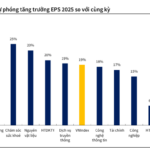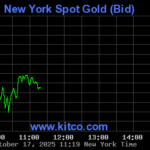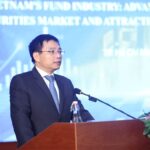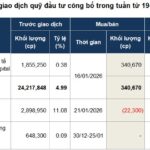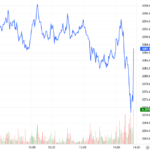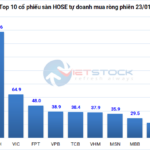At the conference titled “The Role of the Fund Industry in the Development of the Stock Market and Attracting Indirect Investment Capital into Vietnam,” organized by the State Securities Commission on October 17 in Ho Chi Minh City, Mr. Bui Hoang Hai, Vice Chairman of the State Securities Commission, announced that the regulatory body is exploring significant reforms. These include allowing foreign companies to list their shares and introducing gold ETF products on the stock exchange.
Focus on Gold ETFs
Mr. Bui Hoang Hai emphasized, “The current gold market primarily involves physical transactions among three groups: speculators, risk-hedging institutions, and individuals storing gold. This imbalance in supply and demand puts pressure on exchange rates. Gold ETFs will enable investors to participate in the market without holding physical gold, reducing storage risks and stabilizing the market.”
According to Mr. Hai, following the launch of the national gold trading platform, derivative financial products, gold certificates, and gold ETFs will be the next steps to diversify offerings in Vietnam’s financial market.
Ms. Nguyen Ngoc Anh, CEO of SSI Asset Management (SSIAM), highlighted that gold ETFs offer two significant benefits: stabilizing the macroeconomy by reducing foreign currency used for gold imports and providing a safe, legal investment channel. This ensures capital circulation rather than idle storage.
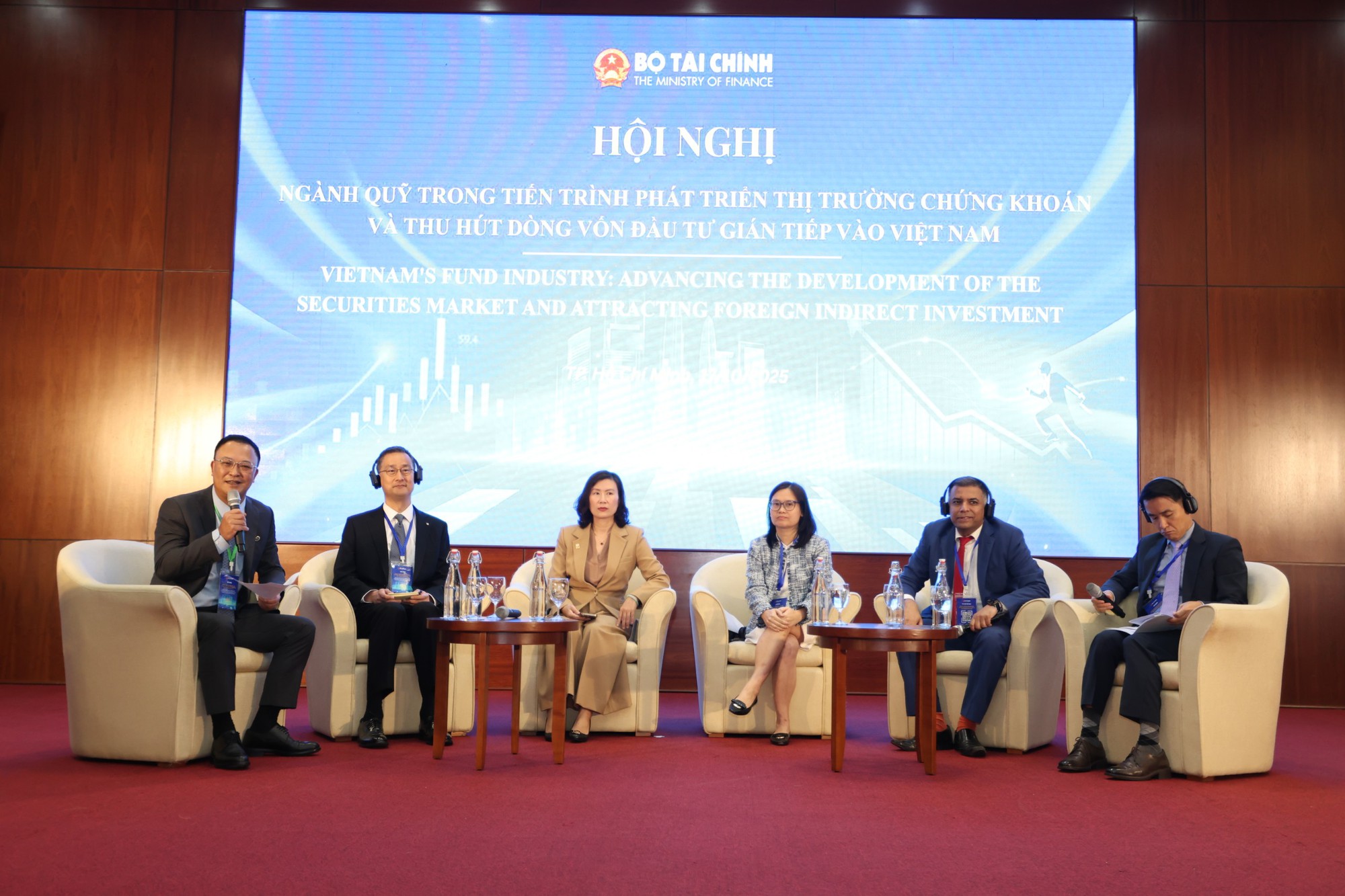
Experts and regulators engaged in discussions at the conference
Additionally, gold ETFs enhance market transparency and diversify investment options, supporting the development of a modern financial market.
Ms. Ngoc Anh also noted Vietnam’s significant potential in infrastructure and real estate funds, though the legal framework remains incomplete. “If a detailed legal framework is established within 3-5 years, investment funds could mobilize substantial resources,” she stated.
Sharing insights from South Korea, Mr. Hyun Dong Sik, Chairman of KIM Vietnam Fund Management, explained that in his country, gold ETFs operate as securities, with transparent custody, management, and trading. “This model enhances investor confidence and facilitates regulatory oversight. Vietnam can adopt this approach to develop its financial gold market,” he suggested.
Increasing Institutional Investor Share
A key focus of the conference was restructuring Vietnam’s stock market investor base. Currently, individual investors account for 99% of over 11 million accounts, with their trading value representing 95% of the total market.
Mr. Bui Hoang Hai noted that while this maintains liquidity, it also increases volatility and perceived risk for foreign investors. “A strategy to increase the share of institutional and professional investment funds is essential for market stability and improved capital mobilization,” he said.
Asset management experts believe Vietnam has a significant opportunity to expand its asset management industry. Ms. Nguyen Ngoc Anh proposed allowing domestic open-ended funds to use derivatives not only for risk hedging but also for profit generation, aligning with international practices.
Ms. Nguyen Hoai Thu, Deputy CEO of VinaCapital Fund Management, urged Vietnam to relax foreign ownership limits in non-sensitive sectors and implement a central counterparty clearing mechanism (CCP) to enhance payment safety. “Improving foreign exchange convertibility and transactions is crucial for foreign investors to conveniently repatriate capital and profits. We must balance forex liberalization with macroeconomic stability,” she stressed.
Mr. Hyun Dong Sik emphasized that to attract sustainable foreign investment, Vietnam must expand high-quality, accessible investment products and streamline licensing processes. “With the right conditions, Vietnam could become a major destination for Asian funds in the coming years,” he predicted.
Minister of Finance Nguyen Van Thang affirmed the growing importance of Vietnam’s investment fund industry in the national financial system. As of now, 43 fund management companies oversee assets exceeding VND 800 trillion, a sevenfold increase since 2014, with an average annual growth of 20%.
However, he acknowledged that this scale represents only 6% of GDP, significantly lower than regional peers like Thailand and Malaysia. “Upgrading Vietnam’s stock market will attract substantial foreign indirect investment, fueling economic growth. This is the time to qualitatively transform the market, increasing institutional investor share and fostering sustainable development,” Minister Nguyen Van Thang emphasized.
Ms. Nguyen Ngoc Anh urged the swift implementation of a foreign exchange risk hedging mechanism for foreign investors. “The VND/USD rate has depreciated by 3% since the beginning of the year and is projected to drop by 4.5% in 2024. Without forex insurance tools, long-term investment in Vietnam may be less appealing,” she warned.
KBSV Research Revises VN-Index Forecast to 1,814 Points by Year-End 2025
In its latest market outlook report for the remainder of 2025, KB Securities Vietnam’s Research Division (KBSV Research) has significantly revised upward its year-end target range for the VN-Index to 1,814 points, a notable increase from the previously forecasted 1,530 points in its most recent report.
Minister of Finance Urges SSC to Focus on Implementing Five Key Solutions for Stock Market Development
The Minister emphasized that the growth of the fund industry in particular, and the stock market in general, requires the active participation and collaboration of fund management companies and market participants.


